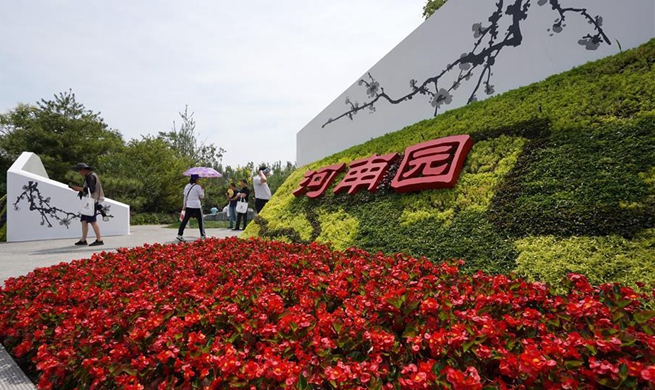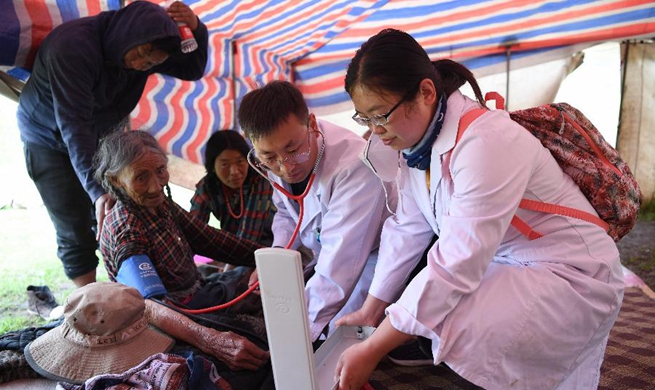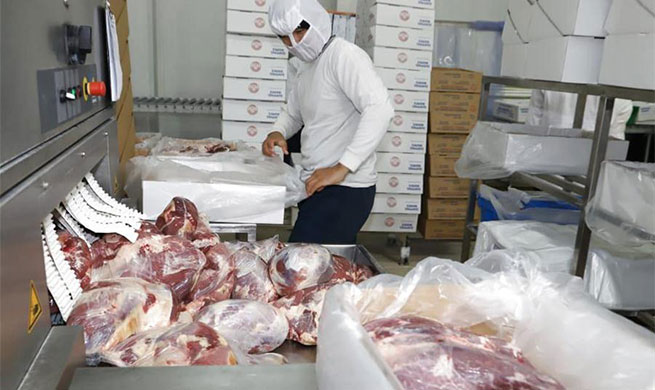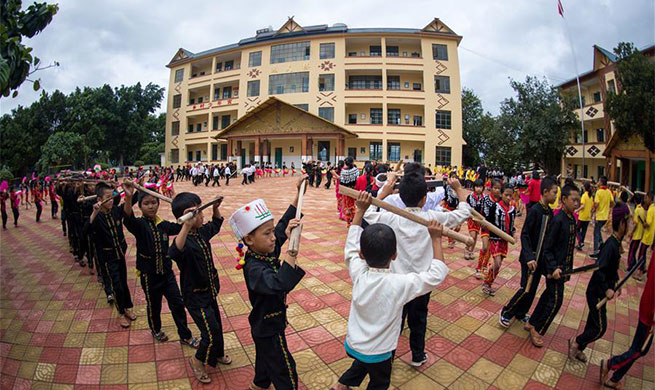NANNING, June 24 (Xinhua) -- For 22-year-old Thai student Suthamas Piantong, seeing the four large locomotives shining in the sun at the training ground in the Chinese city of Liuzhou was a big moment.
Led by her Chinese teacher, Piantong and her fellow Thai students studied the inner structure of the locomotives. She attentively listened to the instruction and took some notes from time to time.
Tang Yunsheng, her teacher, said sometimes he would use a translation app to communicate with the students considering their limited Chinese language skills.
Piantong is passionate about bringing Chinese high-speed train technology back to Thailand. Since March 2018, she has been studying the technology of high-speed rail signals control at Liuzhou Railway Vocational Technical College in south China's Guangxi Zhuang Autonomous Region.
She still vividly remembers taking a high-speed train for the first time in China last year.
"The train ran even faster than I expected. It moved so smoothly and the water in my cup barely sloshed," she recalled.
Under the Belt and Road Initiative, the college has been cooperating with several Thai colleges. In March, the second batch of Thai students arrived at the school.
Deetor Piya, 19, is one of them. He said, "In the past, many of my friends and relatives would prefer to study in Europe and the United States, while more and more people want to come to China now."
"My father is supportive of my choice," he said. "He believes that cooperation between China and Thailand will bring us more opportunities."
China and Thailand signed a memorandum of understanding on railway cooperation in 2014. In December 2017, the two countries jointly inaugurated the construction of Thailand's first high-speed railway from Bangkok to the northeastern province of Nakhon Ratchasima.
In the nearby Liuzhou City Vocational College, Indonesian student Muhammad Apri Yansyah has been studying here for three years.
In 2015, China's automaker SAIC-GM-Wuling Automobile Co. (SGMW) started to construct a plant in Jakarta. Catering to the need of the plant, Liuzhou City Vocational College and the company jointly established an SGMW auto school to train Indonesian students.
"We have received more than 200 Indonesian students over the past three years," said Wu Shuqin, vice president of the college. Some of the graduates have already joined SGMW's Indonesian plant.
Tan Zhuangcai, an official with the education department of Guangxi, said five years ago there were only 68 foreign students in Guangxi and now the number has surpassed 1,000.
By the end of last year, China's vocational schools had carried out more than 350 cooperation programs with Belt and Road countries, training some 100,000 students.
















